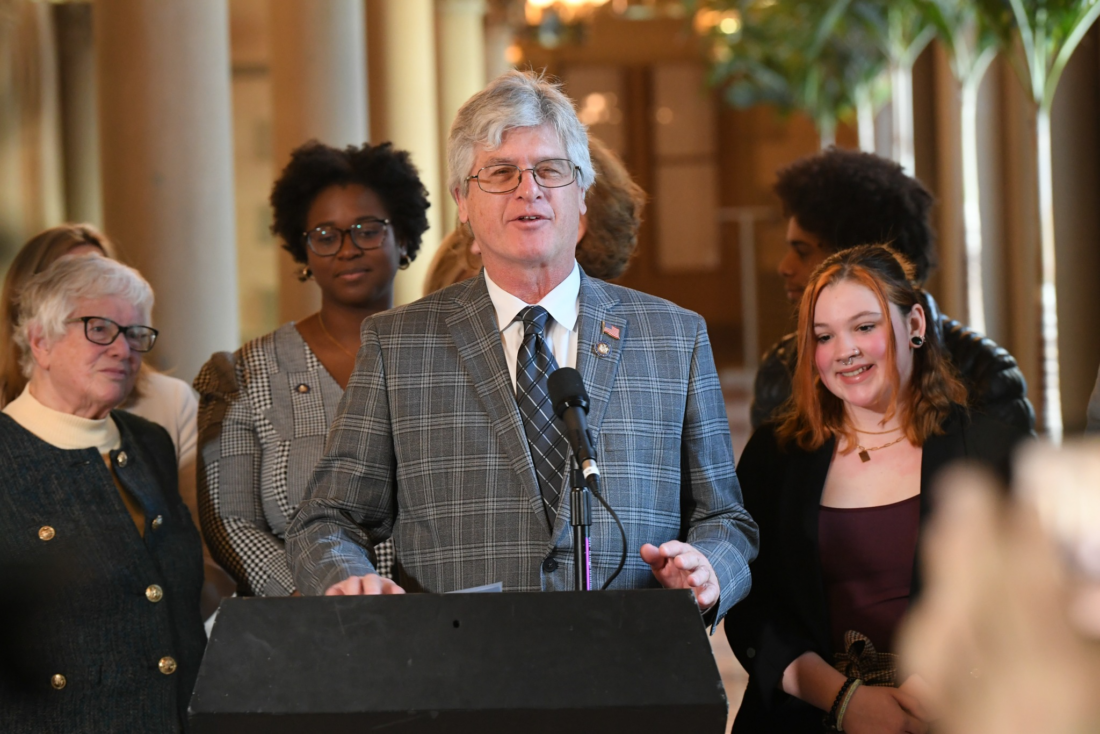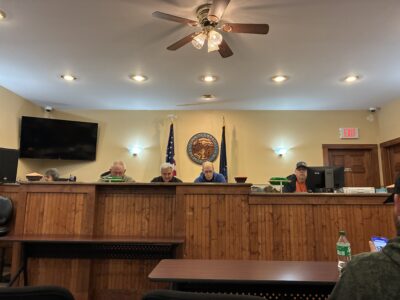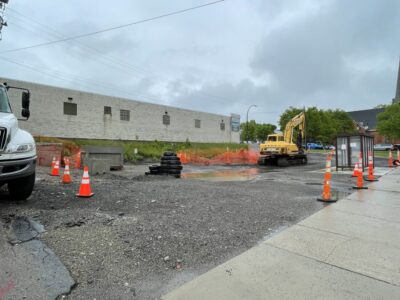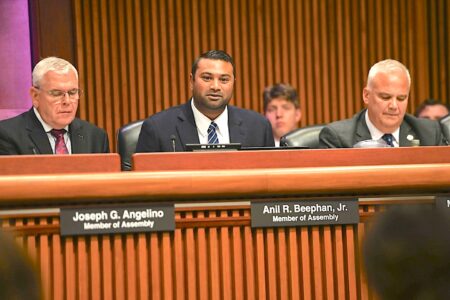Democratic Assemblyman Proposes Easing E-Bus Mandate

Assemblyman Christopher Eachus is pictured during a 2024 news conference. Eachus is sponsoring legislation that would delay the implementation of New York’s electric school bus mandate.
There’s nothing new about Republican lawmakers proposing an extension to the state’s transition from gas-powered school buses to electric buses.
It’s new when Democratic Party lawmakers join the Republican chorus – and that’s what has happened this week in the state Assembly. Assemblyman Christopher Eachus, D-Central Valley, has introduced A.9187 to amend the state Education Law that governs purchase and operation of zero-emission school buses. Eachus proposes extending the deadline when all new bus purchases have to be zero emission from 2027 to 2030 and the date when all buses in operation must be zero emission from 2027 to 2030. Additionally, Eachus proposes adding an extension application process for certain small and rural school districts.
“New York has long been recognized as a national leader in advancing bold climate policy and environmental protection. Many New Yorkers believe in reducing greenhouse-gas emissions, improving air quality, and the goal of moving toward cleaner school transportation. At the same time, however, the current statewide mandate regarding the transition of school buses presents serious logistical, operational, and financial risks for many school districts — particularly rural, geographically large, or resource-limited districts,” Eachus wrote in his legislative justification.
Eachus cites many of the same issues Republicans have raised over the past year regarding the transition to electric buses. Eachus said the upfront cost of purchasing an all-electric bus fleet is substantial while the necessary charging stations, electrical upgrades and bus garage modifications make a speedy transition expensive. The cost of adding 3,000 electric school buses and chargers by 2027 is roughly $780 million, and those 3,000 vehicles would represent 8% of the state’s school bus fleet, meaning the complete transition would require a drastically larger sum of money, Eachus wrote.
Many schools in rural or remote regions of the state have older bus facilities or limited power grid infrastructure that further complicates the transition to electric buses.
“Many school districts face tight budgets, and the cost difference between a diesel/gasoline bus purchase plus infrastructure versus an electric school bus purchase plus infrastructure remains large,” Eachus wrote. “The risk is that districts must either reduce other educational expenditures, raise taxes, or delay replacement of aging vehicles.”
Eachus also echoes other Republican-raised concerns regarding the need to upgrade power distribution infrastructure, including electric substations, feeder lines and service connections, to make sure that electric buses are charged reliably with less risk of service disruptions. Range of current electric buses is also a concern raised by Eachus, particularly for districts where bus routes are longer, have remote stops or have extra-curricular trips like sporting events and field trips.
“In districts where one bus may be expected to serve multiple trips, late-run athletics, and inter-district travel, the
‘one-size-fits-all’ mandate may not reflect operational realities,” Eachus wrote. “Before mandating across all
districts, additional operational data – especially in’rural, cold-weather, high-mileage contexts – would help reduce risk and liability exposure.”
California lawmakers have discussed similar expansions, including one California Assembly bill that extends the deadline for zero-emission school buses to 2045. Assemblywoman Esmerelda Soria, D-Merced, notes many of the issues raised by New York Republicans and now by Eachus – cost, increased maintenance, and lack of charging infrastructure, along with existing electrical infrastructure supporting new charging stations.
Eachus took note of the California talks before introducing his bill.
“Finally, it is worth noting that while New York was the first U.S. state to adopt a statewide electric school-bus mandate, many other states, including California, are proceeding but with more flexible timelines or pilot programs,” Eachus wrote. “Given the above concerns, it is necessary to modify the mandate timeline in order to ensure a workable, fiscally responsible, and safe transition.”





